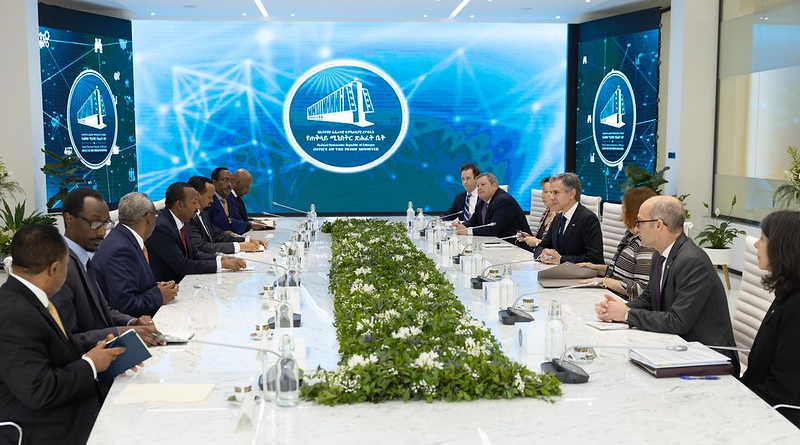The United States has promised Ethiopia $331 million in humanitarian aid to help heal the war-torn Horn of Africa country.
The funds were announced during a visit by US Secretary of State Antony Blinken to Ethiopia on March 15.
The funding will provide life-saving support to those displaced and affected by conflict, drought, and food insecurity in Ethiopia,” he said.
But the aid may not be enough to patch up the frayed relations between the two nations. A tweet posted by African Stream, put it succinctly: “Uncle Sam in the guise of Secretary of State Antony Blinken was in Ethiopia to heal ties after the US earlier accused Addis Ababa of war crimes in the Tigray conflict and cut trade ties.
“So what’s with the sudden change of tune? Could it have anything to do with the fact that arch-geopolitical rival China has been busy signing trade and development deals with Ethiopia and helping the country upgrade its infrastructure? Looks like someone’s worried they’re losing clout on the continent…”
When Mr. Blinken arrived in the Ethiopian capital, Addis Ababa, he was the latest in a parade of Biden administration officials courting the continent amid rising competition for influence with Russia and China, noted the New York Times.
Just a year ago, the two countries were at odds and ends after the U.S. expelled Ethiopia from a regional trade group, citing “gross violations of internationally recognized human rights” by the government of Prime Minister Abiy Ahmed. Such denunciations were not repeated during the meeting Wednesday, however, which focused on “progress in the agreement to cease hostilities.”
This time, Mr. Blinken’s goal was to reset America’s relationship with Ethiopia, a nation of 120 million, headquarters of the African Union and until recently a pillar of American security policy in the region. But the war badly strained that relationship.
Under the new terms of friendship, Mr. Blinken said that Mr. Abiy, along with Tigrayan leaders with whom he also met here, “should be commended” for bringing a halt to the violence, though he cautioned that more work was needed to carry out the agreement.
He also suggested that the U.S. bore some historical responsibility for Ethiopia’s civil strife by remaining silent when abuses were carried out.
“For our part, the U.S. acknowledges (the) human rights violations and repression committed during the past few decades, actions which sowed the seeds of future conflict,” in an apparent reference to a period when Ethiopia was a major American counterterrorism partner and its government was run by a Tigrayan-dominated coalition. “We and others were insufficiently vocal about these abuses in the past.”
In a photo op before a private meeting, Ethiopia’s foreign minister, Demeke Mekonnen, noted that the two nations “have longstanding relations, and it is time to revitalize them and move forward.”
Former U.S. diplomat to Africa Elizabeth Shackelford, opined: “Mr. Blinken should be skeptical toward Mr. Abiy, whose heroic image as a 2019 Nobel Prize winner has been eclipsed by a ruinous civil war for which he bears much responsibility and during which his forces and allied troops from the neighboring country of Eritrea were accused of massacres, sexual assault and ethnic cleansing in Tigray.
“My hope is that the war has changed our approach to the Ethiopian government and made us buy Abiy’s lines less readily.”

